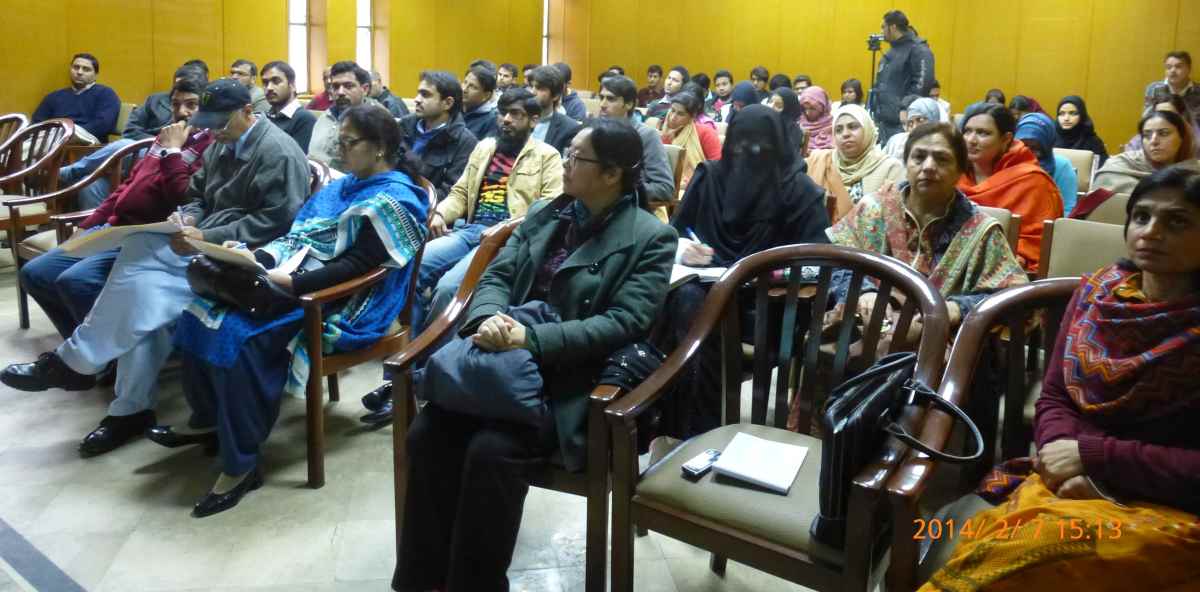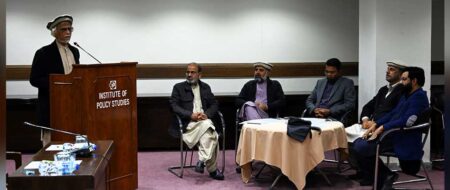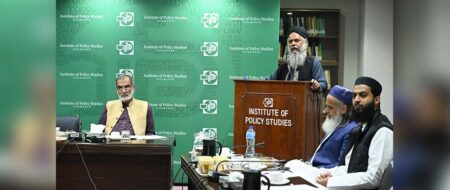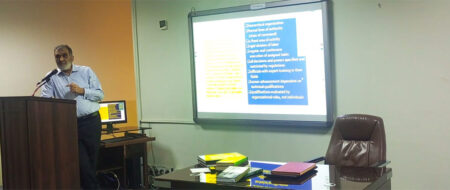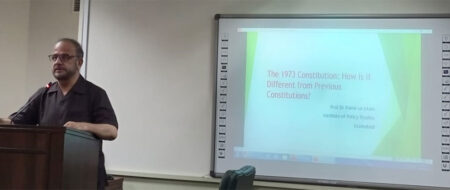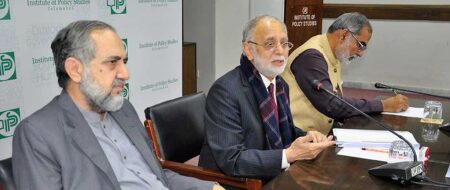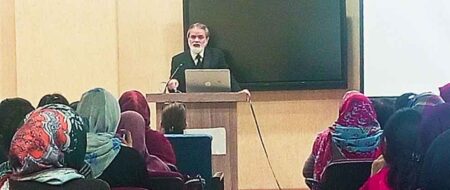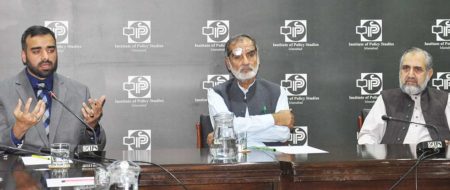Lecture by IPS guest scholar at the University of Punjab, Lahore
Prof. Xiao Jianming, visiting scholar from China, delivered a lecture on “Sino-India Relations: Implication for Pakistan” on February 7, 2014, at the Center for South Asian Studies (CSAS), University of the Punjab, Lahore.
Describing the ups and downs of 63 years of Sino-Indian relations, Prof. Xiao lamented that both countries have not been able to resolve their long standing boundary conflict. However he was optimist that despite of having economic and strategic competition, military concerns and problems in Indian Ocean and South-China Sea, both states realize that they cannot ignore each other while striving to develop their economies.
Explaining the model of cooperation between the two countries, Prof. Xiao said that it began with economic cooperation, but later incorporated the areas of Climate Change, Terrorism and Piracy in the scope. Thus despite of serious conflicts, China and India became strategic partners in 2010 and their trade, which was $2 billion in 2000-2002, crossed $73.90 billion in 2011 and exceeded $80 billion in 2013.
While talking about the future of Sino Indian trade, Prof. Xiao said that the bilateral trade has the potential of worth over $100 billion in year 2015. This will not only create numerous unprecedented opportunities for both countries’ business and investors, but also it will create stability in the region.
Prof. Xiao also threw a light on the regional platforms, stating that the forums like BCIM trade corridor, Kunming Initiative and Yunnan’s ‘Bridgehead strategy and India’s ‘Gateway to East’ have been utilized to improve bilateral relations. By linking the ASEAN Free Trade Area, ASEAN-China Free Trade Area and the ASEAN-India Free Trade Area, the corridor would constitute as one of the largest free trade areas. Therefore, it is essential for China to maintain positive diplomatic relations with India. He also stressed that the tangible advantages of such endeavors are also important for the lesser-developed nations of the region.
While discussing the implications of Sino-Indian relations on Pakistan, Prof. Xiao said that at the end of Cultural Revolution, China adopted a policy of walking on two legs, due to which China started improving its relationship with India. Prof. Xiao said that same situation is persisting between India and Pakistan. Although the dispute of Kashmir hasn’t been resolved, India and Pakistan can still cooperate in number of areas to develop their economic fronts.
Prof. Xiao regarded bilateral trade as the most important factor in improving Indo-Pak relations. Given the huge border between India and Pakistan, many fruitful opportunities for beneficial trade were being missed out. He stressed that there were various areas at the regional level where India and Pakistan can cooperate. Energy can be the key to regional equation, whereas the initiatives like Iran-Pakistan-India (IPI), Turkmenistan-Afghanistan-Pakistan-India (TAPI), and the members of the South Asia Free Trade Area (SAFTA) can play a significant role in the economic progress and cooperation of the two countries. The IPS guest scholar hoped that the cooperation in Afghanistan can also provide an opportunity for India and Pakistan to improve ties.
DG-IPS Khalid Rahman, in his concluding speech, said that in the present world scenario, conflicts are not resolved through on-ground wars, but by the effective presentation of one’s narratives.
He said that the new leadership of Pakistan has given positive signals to improve its relations with India. However it does not mean that Pakistan will alter its stance on the Kashmir dispute. The conflict was actually an issue of justice but has been misrepresented as a territorial issue by the use of incorrect counter narrative.
On the subject of Pak-China relations, DG-IPS said that the two countries are time-tested friends. Where the economic progress has signified the role of China in the region, the role of South Asia in general , and Pakistan in particular, has also become very important due to the turmoil in Afghanistan and the process of its rehabilitation. Therefore it is the need of hour to understand the on-ground situation and plan the narrative for the mutual interests of Pakistan and China.
The lecture was attended by a large number of students who participated actively in question answer session at the end of the event.
